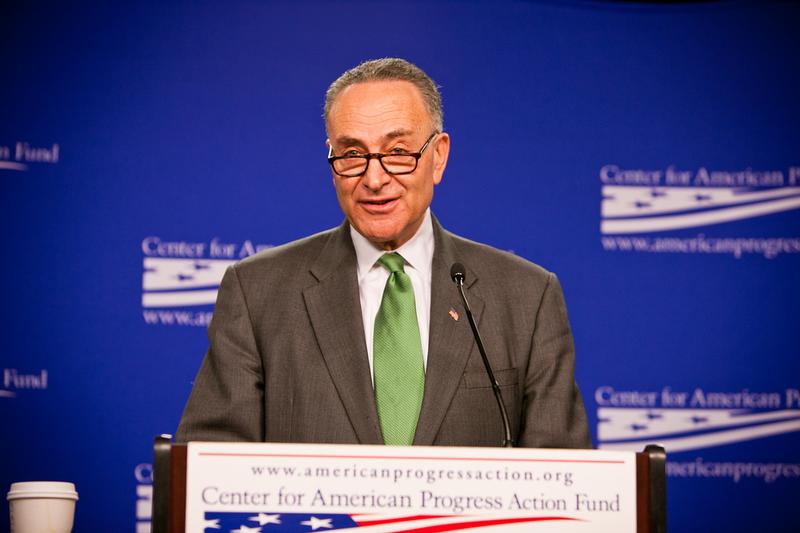
When Supreme Court Justice Antonin Scalia died, it took about an hour for Senate Majority Leader Mitch McConnell and other Republican leaders to rule out the possibility of President Barack Obama replacing the empty seat on the U.S. Supreme Court.
New York Democratic Sen. Charles Schumer responded almost as quickly.
"He doesn’t even know who the president is going to propose," Schumer said on ABC's "This Week," "and he says ‘No, we’re not having hearings, we’re not going to go forward.”
Scalia’s death has suddenly become a key issue in the presidential race and turned up the tension in a Congress that actually managed to agree on a few bills last year.
The vacancy also has reignited a four-decade battle between Republicans and Democrats over the judiciary. Schumer has been in the middle of that fight ever since he became a senator in 1999.
Two days after Justice Scalia died, Republicans sent out video of a 2007 Schumer speech calling on Democrats to block George W. Bush nominees.
"We should not confirm any Bush nominee to the Supreme Court, except in extraordinary circumstances,” Schumer said to the American Constitution Society.
Democrats should prevent the confirmation of judges with views not shared by most Americans, Schumer said in the speech. He defended those comments recently, explaining that he was not suggesting his party block hearings, as Republicans are suggesting no matter who President Obama nominates.
“I think the president – past is prologue - -will nominate someone who is mainstream," Schumer said on "This Week." "His nominees in the past have gotten Republican votes.”
Now Republicans are calling it "The Schumer Standard" — the Senate has the right and responsibility to stop nominations it considers against the wishes of mainstream voters. Republicans point to the 2014 midterm elections, and the fact that Obama has already had two appointments to the court.
It's the latest skirmish in the long simmering battle Schumer has waged.
In 2005, the Republican-controlled Senate threatened to change Senate rules to make it easier to confirm judges. Schumer berated the GOP for considering changing the process so it only requires a simple majority -- the so-called “nuclear option”
“It is amazing," Schumer said on the Senate floor. "It’s almost a temper tantrum by those on the hard, hard right. They want their way every single time. And they will change the rules. Break the rules. Misread the Constitution so that they will get their way.”
The Democrats won. But Schumer and his party chose the “nuclear option” in 2013 when they controlled the Senate and wanted to push through nominations.
But choosing a supreme court justice hasn’t always been so combative.
“In the post-war period that was relatively rare," said Case Western Reserve University law professor Jonathan Adler. Even in election years, some U.S. Supreme Court justices were confirmed in a matter of days or weeks.
That changed in the 1980s, when President Ronald Reagan deliberately chose more conservative judges for federal courts.
Senate Democrats decided to fight back by rejecting some nominations.
“And so they retaliated," Adler said. "And they didn’t simply retaliate in kind, they gave a little extra.”
The battle lines were drawn in 1987, when Democrats fought Reagan’s nomination of Robert Bork to replace Lewis Powell, the swing vote on the court.
“It has now been three decades of escalation and tit-for-tat retaliations over judicial nominations," Adler said.
The politicized, public fight over Supreme Court nominations does have at least one silver lining, says Ruthann Robson, a law professor at City University of New York.
“It all kind of happened, to some extent, backstage," Robson said of the way judges used to be chosen. "And so I think one difference now is how public it is."
